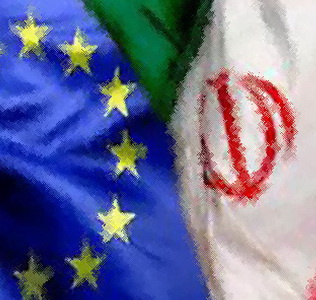EU Prepares for Sanctions as Iran Continues Accusation
By Davoud Kiani, EU affairs expert

As the European Union High Representative for Foreign Affairs and Security Policy Catherine Ashton talks of referring Iran’s nuclear dossier to UN Security Council, EU-Tehran ties continue to go downhill.
Since July’s controversial presidential election, Iran-EU relations have become stormier than ever. Europe was probably the most prominent political entity that Iran engaged in diplomatic struggles with after the election.
Let’s take a closer look at the situation. Europeans have become frustrated with diplomatic efforts to persuade Iran stop its nuclear enrichment program. Negotiations don’t seem to be the primary option for Europeans anymore. Meanwhile, Europe’s diplomatic profile has changed after pro-negotiation Solana was replaced by Catherine Ashton. To some extent, the British diplomat reflects the foreign policy of her country, Britain, which is at the moment the most loathed state in the eyes of Iranian statesmen, probably even more than the United States. EU members are pressurized by Washington to get on board for tougher sanctions against Iran.
EU seems to have been following a dual-track approach after Iran’s presidential election: first is direct interaction with the regime to exert further diplomatic pressures. Second is voicing support for protestors inside the country and trying to side with the body of protestors. If the second track intended to deteriorate relations with the Iranian administration, there is no doubt that it has been successful.
Aware of this policy, Iran has never ceased to denounce European countries in the recent months. Tensions in Tehran’s relations with London, Berlin and Paris are probably at probably standing at their highest point during the recent years. Britain, France, Germany and Italy, spearheads of the tougher sanctions campaign, have tasted the furious tirades of Tehran since July.
Previous cases show that when powerful countries agree on a certain policy, chances for non-implementation aren’t that high. The gradually-decreasing level of relations between Iran and Germany exemplifies the course of developments. A fine example is Siemens’ decision to reduce it trade exchanges with Iran from mid-2010. This becomes significant if we know during the recent years, German statesmen were the most reluctant party when it came to decreasing economic ties with Iran, despite Iran’s ever-accelerating nuclear program.
The United States, meanwhile, has threatened European companies over their cooperation and expansion of ties with Iran. European businesses will face harsh punitive measures if they keep up their relations with an Iran under which is the target of three UNSC sanction resolutions. We should just wait for the outcomes of US intimidation policies.
Since July’s controversial presidential election, Iran-EU relations have become stormier than ever. Europe was probably the most prominent political entity that Iran engaged in diplomatic struggles with after the election.
Let’s take a closer look at the situation. Europeans have become frustrated with diplomatic efforts to persuade Iran stop its nuclear enrichment program. Negotiations don’t seem to be the primary option for Europeans anymore. Meanwhile, Europe’s diplomatic profile has changed after pro-negotiation Solana was replaced by Catherine Ashton. To some extent, the British diplomat reflects the foreign policy of her country, Britain, which is at the moment the most loathed state in the eyes of Iranian statesmen, probably even more than the United States. EU members are pressurized by Washington to get on board for tougher sanctions against Iran.
EU seems to have been following a dual-track approach after Iran’s presidential election: first is direct interaction with the regime to exert further diplomatic pressures. Second is voicing support for protestors inside the country and trying to side with the body of protestors. If the second track intended to deteriorate relations with the Iranian administration, there is no doubt that it has been successful.
Aware of this policy, Iran has never ceased to denounce European countries in the recent months. Tensions in Tehran’s relations with London, Berlin and Paris are probably at probably standing at their highest point during the recent years. Britain, France, Germany and Italy, spearheads of the tougher sanctions campaign, have tasted the furious tirades of Tehran since July.
Previous cases show that when powerful countries agree on a certain policy, chances for non-implementation aren’t that high. The gradually-decreasing level of relations between Iran and Germany exemplifies the course of developments. A fine example is Siemens’ decision to reduce it trade exchanges with Iran from mid-2010. This becomes significant if we know during the recent years, German statesmen were the most reluctant party when it came to decreasing economic ties with Iran, despite Iran’s ever-accelerating nuclear program.
The United States, meanwhile, has threatened European companies over their cooperation and expansion of ties with Iran. European businesses will face harsh punitive measures if they keep up their relations with an Iran under which is the target of three UNSC sanction resolutions. We should just wait for the outcomes of US intimidation policies.

